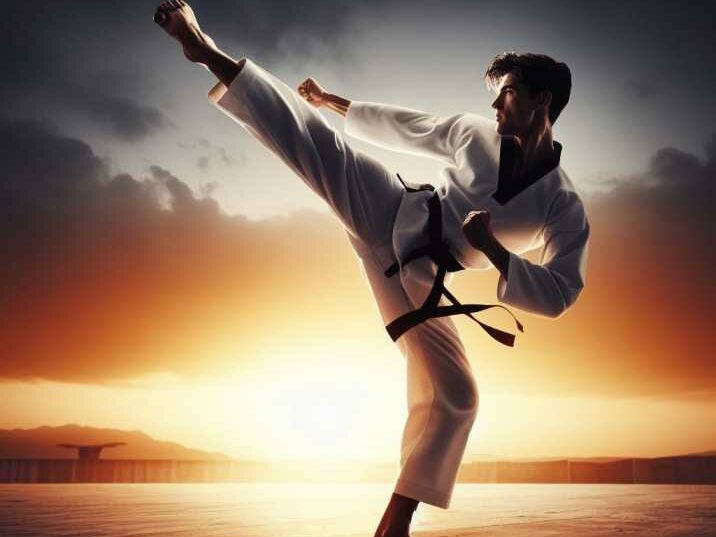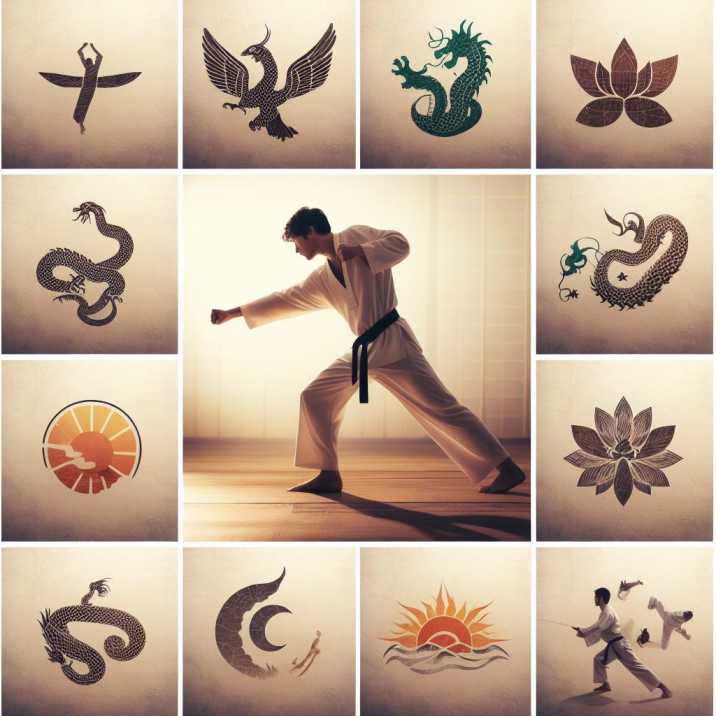Introduction
Table of Contents
When it comes to the captivating world of martial arts, one question has persisted through the ages: Is Tae Kwon Do better than Karate? In this exploration, we’ll dissect the nuances, techniques, and histories of these two disciplines to uncover the truth behind this age-old debate.
Is Tae Kwon Do Truly Superior?
To answer this question, we must first understand the fundamental differences between Tae Kwon Do and Karate. Tae Kwon Do, a Korean martial art, is celebrated for its emphasis on high, fast kicks. In contrast, Karate, originating from Japan, thrives on powerful, direct strikes. Each discipline has its unique techniques and forms, catering to different preferences and body types.

The Power of Kicks: Tae Kwon Do’s Signature Move
Tae Kwon Do enthusiasts swear by its dynamic kicking techniques. The discipline’s emphasis on flexibility and agility allows practitioners to execute high, swift kicks with precision. The aerial displays in Tae Kwon Do competitions often leave spectators in awe. It’s a martial art that celebrates the beauty and effectiveness of kicks, making it a favorite for those drawn to flashy, acrobatic moves.
Precision Strikes: The Essence of Karate
On the other hand, Karate thrives on powerful and direct strikes. Practitioners focus on mastering the art of punching, elbow strikes, knee strikes, and powerful kicks that target the opponent’s vulnerable points. The philosophy of Karate revolves around delivering forceful, accurate blows to incapacitate an opponent swiftly.

Choosing the Right Path: Factors to Consider
The debate of whether Tae Kwon Do is better than Karate ultimately boils down to personal preferences and goals. Tae Kwon Do might be a better fit for those who appreciate the artistry of high kicks and quick movements. Meanwhile, Karate may be more suitable for individuals who value straightforward, effective strikes and a disciplined approach to self-defense.
The Cultural Context: Understanding the Roots
To truly appreciate the essence of Tae Kwon Do and Karate, one must delve into their cultural and historical origins. Tae Kwon Do traces its roots back to ancient Korean martial arts, incorporating elements of traditional Korean philosophy and spirituality. Karate, influenced by Chinese martial arts, evolved in the Okinawa region of Japan and reflects the disciplined and stoic nature of Japanese culture.

A Comparative Glance: Tae Kwon Do vs. Karate
Let’s break down the key differences between Tae Kwon Do and karate in a quick-reference table:
The Verdict: A Matter of Personal Preference
In the debate of Tae Kwon Do vs. Karate, there is no definitive answer. The superiority of one over the other depends on individual preferences, goals, and the cultural context in which one finds resonance. Both martial arts have their unique merits, and the choice ultimately lies in what resonates with the practitioner on a personal level.
Conclusion
In the timeless debate of Tae Kwon Do vs. Karate, the answer lies not in declaring one superior to the other, but in appreciating the diversity they bring to the world of martial arts. Whether you soar with Tae Kwon Do’s high-flying kicks or stand firm with karate’s powerful strikes, the journey is a personal one, guided by individual preferences and goals. So, step onto the dojo floor, embrace the discipline that resonates with you, and let the martial arts journey unfold.
Frequently Asked Questions
Q1: Is Tae Kwon Do more effective for self-defense than karate? A1: Both Tae Kwon Do and karate offer effective self-defense techniques. The efficacy depends on the practitioner’s skill level and the specific techniques they have mastered.
Q2: Can I practice both Tae Kwon Do and karate simultaneously? A2: While it’s possible to cross-train in multiple martial arts, it requires dedication and an understanding of the distinct techniques and philosophies of each discipline.
Q3: Are Tae Kwon Do and karate suitable for all age groups? A3: Yes, both Tae Kwon Do and karate offer programs tailored to various age groups, ensuring that practitioners of all ages can benefit from these martial arts.
Q4: Do Tae Kwon Do and karate have competitions? A4: Yes, both martial arts have competitive aspects, with tournaments and competitions held globally. Tae Kwon Do is notably featured in the Olympic Games.
Q5: Which martial art has a more rigorous training regimen? A5: The intensity of training varies among individuals and schools rather than between the martial arts themselves. Both Tae Kwon Do and karate can have demanding training programs.
Q6: Are there health benefits associated with practicing Tae Kwon Do or karate? A6: Yes, both martial arts offer physical and mental health benefits, including improved flexibility, strength, balance, and mental discipline.
Q7: Can Tae Kwon Do and karate be learned through online classes? A7: While online resources can supplement training, mastering martial arts typically requires hands-on instruction from qualified instructors.


